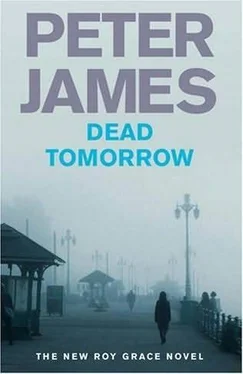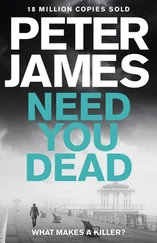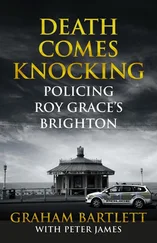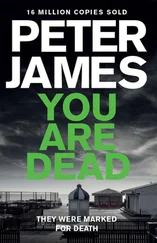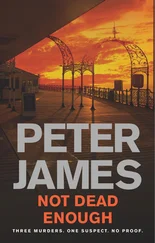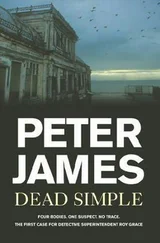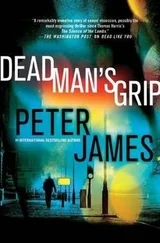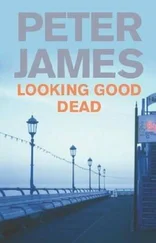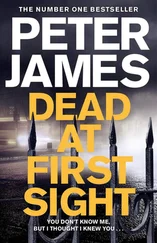‘You cheeky monkey!’ Lynn tried to move, but both her legs had stiffened up.
There was a grinding roar of construction machinery outside. Then the door opened and the transplant coordinator they had met last night came in.
Today, rested and in daylight looking even more the English rose, Shirley Linsell was wearing a blue sleeveless cardigan over a white blouse and dark brown slacks.
‘Hi,’ she said. ‘How are we today?’
Caitlin ignored her, continuing to text.
‘Fine!’ Lynn said, resolutely rising to her feet and pounding her dead thighs with both fists. ‘Cramp!’ she said, by way of explanation.
The transplant coordinator gave her a brief, sympathetic smile, then said, ‘The next test we are going to do is a liver biopsy.’ Walking across to Caitlin, she went on, ‘You are busy – got a lot of messages?’
‘I’m sending out instructions,’ Caitlin said. ‘You know, like what to do with my body and stuff.’
Lynn saw the shock on the coordinator’s face and the quizzical look on her daughter’s, that expression she so often had where it was impossible to tell if she was joking or being serious.
‘I think we have plenty of options for making you better, Caitlin,’ Shirley Linsell said in pleasant tone that did not patronize Lynn’s daughter.
Caitlin pressed her lips together and looked up with a wistful expression. ‘Yeah, well. Whatever.’ She shrugged. ‘Best to be prepared, right?’
Shirley Linsell smiled. ‘I think it’s best to be positive!’
Caitlin rocked her head sideways a few times, as if weighing this up. Then she nodded. ‘OK.’
‘What we’d like to do now, Caitlin, is to give you a small local anaesthetic, then we will take a tiny amount of your liver out with a needle. You won’t feel any pain at all. Dr Suddle will be here in a minute to tell you more about it.’
Abid Suddle was Caitlin’s consultant. A youthful, handsome thirty-seven-year-old of Afghan descent, he was the one person who, in Lynn’s view, Caitlin always seemed comfortable with. But he wasn’t always around, as the medical team were constantly being rotated.
‘You won’t take too much, will you?’ Caitlin asked.
‘Just the tiniest amount.’
‘You know, like, I know it’s fucked. So I sort of need whatever I’ve got left.’
The coordinator gave her a strange look, again uncertain whether Caitlin was joking.
‘We’ll take the absolute minimum we need. Don’t worry. It’s a minute amount.’
‘Yep, well, I’ll be pretty pissed off if you take too much.’
‘We don’t have to take any,’ the coordinator assured her gently. ‘Not if you don’t want us to.’
‘Right, cool,’ Caitlin said. ‘That would mean Plan B, right?’
‘Plan B?’ the transplant coordinator queried.
Caitlin spoke, still staring at her phone. ‘Yep, if I decide I don’t want your tests.’ Her expression was blank, unreadable. ‘That would be Plan B, wouldn’t it?’
‘What do you mean exactly, Caitlin?’ Shirley Linsell asked gently.
‘Plan B means I die. But, personally, I think Plan B is a pretty crap plan.’
After the post-mortem on Unknown Male, Roy Grace drove back to CID headquarters. He spent the entire journey talking on his hands-free to Christine Morgan, the Donor Liaison Sister at the Royal Sussex County Hospital, learning as much as he could about the human organ transplant process, in particular the administration of the supply of organs and donation procedures.
He finished the call as he drove into the car park at the front of Sussex House, manoeuvred around a parking cone marking off a space reserved for a visitor and pulled into his parking slot. Then he switched off the engine and sat, deep in thought, puzzling over who this dead young man was and what might have happened to him. Rain rattled on the roof and pattered on the windscreen, steadily covering it, turning the white wall in front of him into a shimmering, blurry mosaic.
The pathologist was convinced the organs had been professionally, surgically removed. The young man’s heart, lungs, kidneys and liver were gone, but not his stomach, intestines or bladder. From her own experience with organ donor bodies she had processed through the mortuary, Cleo had confirmed that families of donors often gave consent for those items, but wanted the eyes and skin retained.
The big inconsistency remained that Unknown Male had eaten a meal only hours before. A maximum of six hours before, the pathologist had estimated. Christine Morgan had just told him that even in the event of the sudden death of a victim who was on the National Organ Donor Register and carrying a donor card, it was extremely unlikely, to the point of pretty much an impossibility, that the organs would be harvested so quickly. There was paperwork to be signed by the next of kin. Matching recipients to be found on the databases. Specialist surgical organ recovery teams to be dispatched from the different hospitals where the organs would be taken for transplant. Normally the body, even if brain-stem dead, would be kept on life-support systems, to keep the organs perfused with blood, oxygen and nutrients until removed, for many hours, and sometimes days.
The timing was not absolutely impossible, she told Roy. But she had never experienced a situation where things had happened so quickly, and the young man had definitely not been in her hospital.
He picked up his blue, A4 notebook from the passenger seat, rested it against the steering wheel and wrote AUSTRIA? SPAIN? OPT-OUT COUNTRIES? Was it really a possibility that Unknown Male was an Austrian or Spanish organ donor buried at sea? Austria was a landlocked country. And if he was from Spain could he have drifted over 100 miles in just a few days?
Improbable enough to be discounted at this stage.
He felt hungry suddenly and glanced at the car clock. It was quarter past two. He never normally had much of an appetite after a post-mortem, but it had been a long time since his early-morning bowl of porridge.
Turning up the collar of his raincoat, he sprinted across the road, climbed over a low but awkward brick wall, ran up the short, muddy track and through the gap in the hedge, the standard shortcut to the ASDA superstore which served as Sussex House’s unofficial canteen.
*
Ten minutes later he was seated at his desk and unwrapping a dismally healthy-looking salmon and cucumber sandwich. Some while back Cleo had started quizzing him on what he ate when he wasn’t with her, knowing his tendency for junk food while at work and that for the past nine years he had survived on microwaved instant meals at home.
So at least he could look her in the face tonight and tell her he had eaten a Healthy Option sandwich. He would just conveniently omit the Coke, the KitKat and the caramel doughnut.
He quickly glanced through the post his MSA, Eleanor, had piled on his desk. On the top was a typed note in response to the Police National Computer registration plate check he had requested on the Mercedes he had seen earlier this morning, GX57 CKL. It was registered to a Joseph Richard Baker at an address he recognized as a high-rise block close to the seafront, behind the Metropole Hotel. The name was vaguely familiar but nothing that ran up any flags. There was no marker on the vehicle. There was a Joe Baker who had long been around the seedier side of Brighton, running saunas and massage parlours. It figured he would be out late and in a flash set of wheels.
He turned his attention to his emails, noting a few that needed urgent replies, then logged on to the serials. As he glanced through them, noting the usual domestics, muggings, break-ins, moped thefts and RTCs, but not major incidents, he took a bite of the sandwich, wishing he had gone for the All Day Breakfast option of a triple-decker egg, bacon and sausage wedge instead. Then, unscrewing the cap of the Coke, he remembered his promise yesterday to the Argus reporter. Reaching for his Rolodex, he spun it to find the man’s card and dialled his mobile number.
Читать дальше
